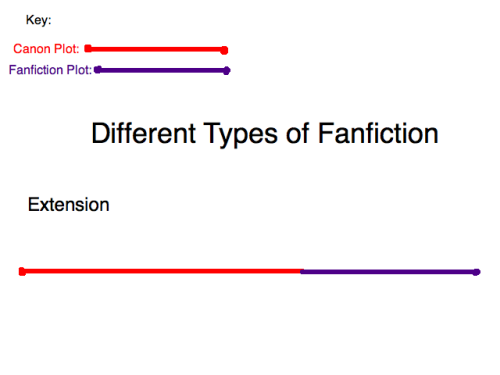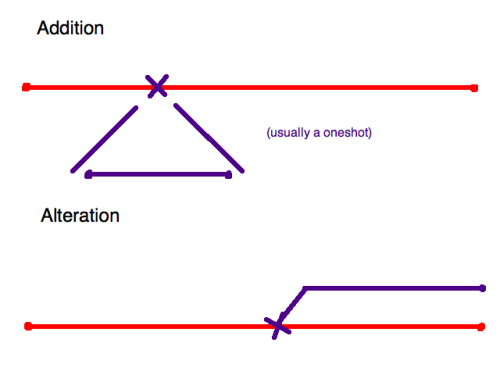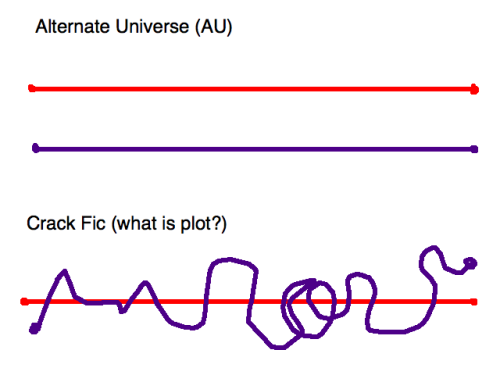Different Sentence Structures And The Vibes They Can Achieve
Different sentence structures and the vibes they can achieve
1. Short, choppy sentences
Excellent for creating tension, urgency, or drama because they speed up the pacing and convey intense emotion.
She said no. I didn’t listen. I should have.
2. Long, flowing sentences
These are great for descriptions, adding detail, and explanations. They can create an intellectual or reflective vibe—or even a dreamy one. You can also use them to evoke a sense of being overwhelmed. They slow the pacing, add complexity, and help build tension. But once you're in the thick of a tense moment, it's often better to switch back to short sentences to keep the energy up.
As the sun dipped behind the horizon, casting a golden sheen across the cracked pavement, she stood there, unsure of what she was waiting for—only that something, anything, had to change.
3. Fragmented sentences
These give off a casual, stylized, and emotional tone. They're perfect for internal monologue and mimicking the way we actually think or speak.
Not the way I planned. Not even close. But here we are.
4. Repetitive structure
They add drama, rhythm, and emotional intensity. It's a powerful stylistic tool that can drive a point home.
She wanted peace. She wanted quiet. She wanted to forget.
5. Inverted or unusual word order
If you're aiming for a formal, archaic, or poetic tone, this structure will get you there.
Gone was the light from his eyes.
6. Interruptions (em dashes or parentheses)
If you're going for a conversational, conflicted, or stream-of-consciousness vibe—even something humorous if used right—interruptions are your friend. They mimic how we speak and think in real time.
I was going to tell her—God, I really was—but I couldn’t.
7. Questions
Questions are fantastic for showing uncertainty, anxiety, or inner conflict. They can also give off a philosophical tone and invite reflection from both the character and the reader.
What if I never make it out? What if this is it?
More Posts from Allegedlyiwrite and Others
Avoiding therapy speak in writing

I think we all know by now that therapy speak is irritating and unrealistic, especially if you are writing in a fantasy world that doesn't even have modern psychology.
Part of the reason that it is so annoying is that it is the definition of telling instead of showing: characters are just plainly informing us of their feelings rather than making us work for a better understanding. It's cheap and boring. Instead of making your characters seem like complex individuals with their own hangups and difficulties, they seem like plot points programmed to tell us things.
But obviously, you want to put these people in situations and have them talk about it! How do you do that without sounding maudlin? Here are some options.
Listen to real arguments/conversations
I cannot stress enough how important it is to listen to how actual real human beings talk to each other during heightened emotional states. They don't have to be nasty abusers, and they don't have to be perfect angels, just everyday people doing their normal thing.
Of course, I'd hope you're not seeing people argue all the time, but if you do happen to see it, listen carefully and notice how people actually address their problems. Think back to tough conversations that you have had, even if you wouldn't classify them as arguments. Consider how people acted and reacted to one another. Notice how normal humans talk about issues outside of therapy, even intelligent and emotionally evolved people.
I've had years of therapy, and even I do not talk in therapy ways about my issues when I'm talking to my family or friends. It just feels cheesy and fake outside of that particular setting - plus, it freaks other people out and can seem kind of manipulative. Try talking like that in a real conversation and see how uncomfortable it is. You'll understand why avoiding therapy speak is important.
Consider the character's own hangups
Just as everyone has their own unique speaking style and mindset, so do we all have our own argument styles. These are often informed by our pasts and upbringing; they are as varied as our own histories. However, there are a few different options.
Someone with a happy upbringing may be more assertive and willing to address their problems because they had that demonstrated to them as children.
A spoiled child will grow up to be a demanding adult who refuses to give any quarter.
Those who got yelled at a lot as children may shut down and fawn to avoid getting hurt.
Someone who grew up in a violent household may mimic that behavior and get incredibly aggressive when upset.
Individuals whose parents didn't teach them emotional regulation will lash out and get loud.
Manipulative people may stay very calm and gaslight the other person, or they may get hysterical to garner sympathy and make people focus on comforting them.
Someone who has gone to therapy may revert to their original argument style, or they may imperfectly apply what they have learned in a way that feels a bit unnatural. They may start out with rage, then force themselves to calm down through grounding techniques.
People who have been coached through previous emotional outbursts could demand a time out, then fail to actually calm themselves down.
Some may refuse to acknowledge they are upset and insist, in increasingly forceful terms, that they are fine.
Others may get quiet or crack a joke to ease the tension, but it doesn't really help.
Keep each confrontation short
IRL, emotional confrontations are generally not that long. They don't go on for hours and hours, though it can feel that way. No one is going on and on about their feelings and sharing every little detail of how they feel (at least not that I know of personally, maybe other people are different).
Even the worst arguments I have had, the real nexus of the argument was maybe an hour or two, though the fallout lasted much longer. I'd say there was an hour maximum of real, active confrontation, preceded or followed by hours/days/weeks of simmering frustration.
Why? Because arguments are exhausting. You don't have the energy for that in the heat of the moment. Yes, feuds and fights can last years, but each actual confrontation is short.
For longer, more serious issues, hash it out over a few sessions rather than all at once. It's rare to get everything out of the way immediately unless the characters already have a strong, loving relationship.
Show incongruencies
Especially for more reserved people, they will likely have their emotions leaking all over the place but won't actually say anything. As such, focus on body language while keeping the conversation more focused on the plot. For example, Character A might be crying but still trying to argue their point about whatever is going on.
Address physical complaints instead of emotional ones
In many cases, people will use "I'm tired" or "I didn't sleep well" or "I'm not feeling great" as shorthand for whatever is actually bothering them. It relieves pressure by not making them talk about upsetting matters while still addressing their discomfort in some form.
You should also consider the fact that some people can't connect physical sensations to feelings, so they may genuinely feel ill and not really understand why. This is especially common in people who can't emotionally regulate or have been through trauma.
For myself, I tend to somatize my feelings, so I might not feel upset, but I will feel physically sick. My stomach will hurt, my chest will get tight, or I'll get a headache, but my emotional state will seem calm. This isn't all that unusual, and many people experience this to different degrees.
As such, you can have your character say that their stomach hurts, or that they have a headache and can't discuss this anymore, or that they need to go lie down because they're dizzy. If we know they're relatively healthy, this can be a clue that they're getting overwhelmed but either cannot pinpoint their emotions or don't want to discuss them.
Let characters advance and retreat
A lot of the time, someone will address a scary emotion and then retreat again, sometimes over a period of hours, days, or even weeks. This is normal: most of us don't have the emotional fortitude to forge ahead through something difficult all in one go. Character A may say something vulnerable, then change the topic, laugh it off, say they're done discussing it, or even leave the situation.
Leave emotions partially unaddressed
Again, it's rare for someone to spill out everything they're feeling all in one go. As such, have Character A address the most important thing - or the least important, depending on their level of emotional maturity - and let it be done for then.
They might say their small piece, but when someone tries to probe deeper, they don't have an answer, or they get "stuck" on that one emotional level and cannot go further.
If Character B keeps pushing, then they may get incredibly upset and push back, or retreat.
Have Character B point out the feelings
Works especially well if the other character is a close companion or a parental figure. Often, people who know us really well will have better insight into our emotions than we do. Or, we might have good insight into our emotions but are still too afraid to open up. Having Character B point out the issue gives Character A grace to be more honest.
I can't tell you how many times I've been really upset, so I've distracted from the issue by getting angry about something completely different. Then, my mom will gently point out that I'm not actually crying about my new plastic cup being broken or whatever; I'm actually upset about XYZ. In that moment, I realize I've been caught out and admit that yes, that's what I'm really upset about.
Have Character A address it with a third character
Who among us hasn't gone to someone else to talk about our feelings? Having a third party serve as a sounding board is normal. Sometimes, Character A will feel such catharsis from this conversation that they don't address it as thoroughly with Character B.
Of course, you can use this to your advantage and create more tension if the third character gives bad advice or is biased.
Remember that just because the third party responded well does not mean that Character B does. You also have to avoid omniscience and remember that Character B wasn't privy to that conversation.
Have one confrontation be a stand-in for a larger one
I always think about the "The Iranian Yogurt Is Not the Issue" post when I think about this. Often times, things like not doing the dishes or whatever aren't actually the big deal: it's lack of boundaries, communication, or respect. A minor argument can be shorthand for a larger one that is too challenging for the characters to tackle.
This isn't just creating drama for the hell of it, though; it's about exploring the larger issues without making the characters lay it out on the table. A good reader will be able to see it's not about the Iranian Yogurt as long as you set up the relationship well.
Currently, I am writing a story where Uileac and his sister Cerie go to rescue Uileac's husband, Orrinir. On the way there, Uileac idly comments on how he wonders where a waterfall comes from because he's trying to distract himself from thinking about the fact that his husband is kidnapped and possibly dead.
Cerie, being pretty wound up too, starts arguing with him about it because she's like "why is this relevant? We're kind of too busy to think about geology right now!" Uileac gets annoyed at her for being so aggro, and she gets annoyed at him for being so irreverent. Both of them are upset about something completely different, but they're too scared and panicked to actually address that, so they release their frustrations by complaining about waterfalls.
Those bad vibes have to go somewhere, but neither of them are very good at talking about their feelings (though very good at stuffing them down). As such, they take the pressure off by sniping at one another. You've probably done this too, when you get into a dumb argument about something absolutely pointless because there's something you don't feel strong enough to discuss.
There's also the fact that if you're mad at someone about something but feel it's too stupid or petty to discuss, that frustration will leak out and everything else they do will annoy you, leading to a bunch of irrelevant arguments.
Use "reaffirmation" gestures
I talked about this in a different post, but after an argument, the "make up" stage doesn't always involve going "ohhh I forgive you" and big hugs and kisses, especially when the two characters aren't emotionally mature.
Instead, Character A makes gestures that reaffirm the relationship. This could be offering to do something Character B needs, making plans for later, or changing the topic to discuss something the other character cares about ("how are your cats doing?") etc.
Note that these "reaffirmation" gestures aren't the same as the cycle of abuse. This is more when two characters have had a difficult emotional conversation but aren't really sure how to continue being emotionally open, so they revert to something safer that still shows they care. They're not over-the-top gestures either, but more a special attention to something the other person loves. Knowing what the other person loves also demonstrates the depth of their relationship.
As always, I can't tell you what to do with your writing.
You are the crafter of your own story, and if you want people to talk like therapists for whatever reason, that's your choice. However, we want characters to feel like real people, and most real people don't lay it all out on the table every single time they're upset. If they do, they might be trauma vomiting, which is icky in and of itself.
Healthy communication isn't always perfect communication. People can have strong, loving relationships and still get things wrong - we're human. Having people calmly and rationally and easily talk about their feelings every single time is not only kind of boring, but it also feels weird, because unless we're primed to discuss those difficult topics and know we're perfectly safe, we're not going to do that.
People don't even do that in therapy, where they are paying for the service of talking about their feelings! Therapists also don't always do that IRL!
We're humans, and your characters need to feel like humans as well. That means letting them be imperfect communicators and using context clues rather than making them do all the work for the reader.
If you liked my advice, consider purchasing my book, 9 Years Yearning, for $3!
being disabled will really have you thinking/saying things like “yeah i’m not really THAT disabled. as long as i take my meds twice a day (and as needed), eat and drink exactly the right things, keep the perfect balance of being active and resting, the weather is stable, and nothing unexpected happens AT ALL… i’m totally FINE! i probably should not even call myself disabled at this point because i’m doing so well!”
if you don’t want to call yourself disabled, that’s fine and it is your choice! but if you’re only “fine” or “doing really well” when a bunch of different variables are all lined up perfectly, then maybe you are not fine actually. just a thought!
"Came back wrong" trope but actually the character came back right. A character who, when they were living, hid and changed so many parts of themself around others to appease them and, when they died and came back, they stopped doing so and started living as who they always have been. But everyone thinks they came back wrong because of how different they are
I love the notes I gave myself during my first draft. I think one of my favorites is: we need to standardize pet names.

Yes this is everything, especially because it’s so human. Real healing isn’t linear. You don’t decide to be better and magically always beat your bad habits. When push comes to shove, people fall back on their old coping mechanisms and whatnot, so when a character does it, they real so realistic.
Redemption arcs should not be straightforward.
Honestly, I love it when characters relapse. When someone who’s gotten over their anger issues falls into a situation so out of their depth they fall back on their old habits. When someone who’s learned to open up becomes a recluse again in order to cope with something outside their control.
There’s just something so horrible, so toxic, about watching a character grow and then slip back into their old selves in order to cope, bc you know they still care, that they’re the same inside, but watching them hurt so hard they don’t know what else to do brings a sense of catharsis.
What am I doing? Just talking through my story to myself instead of writing it.




I don’t know if anyone has ever done this before but, here ya go… The Different Types of Fanfiction!
I probably left a few out, but these are the most common, compared to their base fiction’s canon plot. Enjoy! XD

Notes from a 5-day creative writing course:
Motivation
Make it a habit. That way, each time that familiar voice of self-doubt makes its appearance, it’ll be easier to ignore it, because writing will become something that you do-your thing-and you’ll gain confidence in it.
Visit your novel every single day. It doesn’t necessarily mean that you have to write something every day. You could outline the plot, or write character portraits, or draw a special part of your world. Your subconscious will work on your story even when you don’t. So, each time you visit the story consciously, you’ll find that things have developed in the story.
Manage the time of writing in a way that it is manageable for you. (It can be that one hour between classes or your lunch break or the morning before you go to work or at night before you sleep - Schedule it in a way that suits you and then, be serious about it.
Set a goal. For example, 100 or 500 words a day.
Keep reading
reblog if you have skilled writer friends and you're damn proud of them
-
 c0ffeetrees reblogged this · 1 week ago
c0ffeetrees reblogged this · 1 week ago -
 wizard-writings reblogged this · 1 week ago
wizard-writings reblogged this · 1 week ago -
 shadowfwebby liked this · 1 week ago
shadowfwebby liked this · 1 week ago -
 aster-daydream404 liked this · 1 week ago
aster-daydream404 liked this · 1 week ago -
 loralya3848 liked this · 1 week ago
loralya3848 liked this · 1 week ago -
 lov3rachan liked this · 1 week ago
lov3rachan liked this · 1 week ago -
 adaydreamduck liked this · 1 week ago
adaydreamduck liked this · 1 week ago -
 monkeyshua liked this · 1 week ago
monkeyshua liked this · 1 week ago -
 alexthegeekyghost liked this · 1 week ago
alexthegeekyghost liked this · 1 week ago -
 fhteehj liked this · 1 week ago
fhteehj liked this · 1 week ago -
 celestieblackheart liked this · 1 week ago
celestieblackheart liked this · 1 week ago -
 somethingstrange211 liked this · 1 week ago
somethingstrange211 liked this · 1 week ago -
 vyladsflower513 liked this · 1 week ago
vyladsflower513 liked this · 1 week ago -
 russellfvr liked this · 1 week ago
russellfvr liked this · 1 week ago -
 accaran-feral liked this · 1 week ago
accaran-feral liked this · 1 week ago -
 neon-kazoo liked this · 1 week ago
neon-kazoo liked this · 1 week ago -
 kbonwhobeebos liked this · 1 week ago
kbonwhobeebos liked this · 1 week ago -
 katofrafters liked this · 1 week ago
katofrafters liked this · 1 week ago -
 ethancollinz liked this · 1 week ago
ethancollinz liked this · 1 week ago -
 ipeedinursocks liked this · 1 week ago
ipeedinursocks liked this · 1 week ago -
 userpersonthinguy liked this · 1 week ago
userpersonthinguy liked this · 1 week ago -
 mybedofdreams reblogged this · 1 week ago
mybedofdreams reblogged this · 1 week ago -
 wromwood liked this · 1 week ago
wromwood liked this · 1 week ago -
 eerieeyes liked this · 1 week ago
eerieeyes liked this · 1 week ago -
 defenestrationfordummies reblogged this · 1 week ago
defenestrationfordummies reblogged this · 1 week ago -
 defenestrationfordummies liked this · 1 week ago
defenestrationfordummies liked this · 1 week ago -
 whatisshewritingg liked this · 1 week ago
whatisshewritingg liked this · 1 week ago -
 futchbrownie liked this · 1 week ago
futchbrownie liked this · 1 week ago -
 inkscaled liked this · 1 week ago
inkscaled liked this · 1 week ago -
 davetebopoetdude liked this · 1 week ago
davetebopoetdude liked this · 1 week ago -
 golde-silvere liked this · 1 week ago
golde-silvere liked this · 1 week ago -
 julebug123 liked this · 1 week ago
julebug123 liked this · 1 week ago -
 iputhepinprincess liked this · 1 week ago
iputhepinprincess liked this · 1 week ago -
 nelehgrimm liked this · 1 week ago
nelehgrimm liked this · 1 week ago -
 snsp6 liked this · 1 week ago
snsp6 liked this · 1 week ago -
 snow-slayer liked this · 1 week ago
snow-slayer liked this · 1 week ago -
 scalapro reblogged this · 1 week ago
scalapro reblogged this · 1 week ago -
 scalapro liked this · 1 week ago
scalapro liked this · 1 week ago -
 kittenlover614 reblogged this · 1 week ago
kittenlover614 reblogged this · 1 week ago -
 kittenlover614 liked this · 1 week ago
kittenlover614 liked this · 1 week ago -
 penguin-penguin-penguin liked this · 1 week ago
penguin-penguin-penguin liked this · 1 week ago -
 fabulousvelociraptor liked this · 1 week ago
fabulousvelociraptor liked this · 1 week ago -
 lavottino liked this · 1 week ago
lavottino liked this · 1 week ago -
 amandabe11man liked this · 1 week ago
amandabe11man liked this · 1 week ago -
 papsiguesss reblogged this · 1 week ago
papsiguesss reblogged this · 1 week ago -
 papsiguesss liked this · 1 week ago
papsiguesss liked this · 1 week ago

21 he/they black audhdWriting advice and random thoughts I guess
232 posts